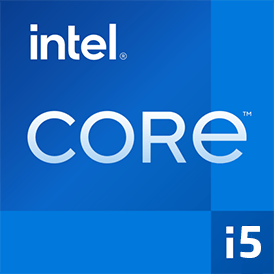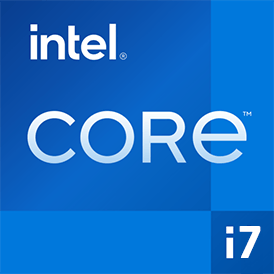
Vergleichen Sie Intel Core i7-8706G VS Intel Core i5-7300HQ. Which processor delivers superior performance?
In this detailed comparison, we evaluate the specifications and benchmarks of both processors to determine the best choice for your needs. We analyze their core counts, maximum frequencies, and power consumption.
Intel Core i7-8706G boasts a maximum frequency of 3.10 GHz GHz. 4 cores that enhance multitasking capabilities.With a power consumption of 65 W W, it ensures efficient performance.Freigegeben in Q1/2018, it incorporates the latest technology for optimal efficiency.
Intel Core i5-7300HQ features a maximum frequency of 2.50 GHz GHz. 4 cores designed for high-performance tasks.Its power consumption is 45 W W, providing a balance of power and efficiency.Launched in Q1/2017, it is built to handle demanding applications.
 Gründe für die Berücksichtigung
Gründe für die Berücksichtigung Platz in der Gesamtwertung
(basierend auf mehreren Benchmarks)
Höhere Taktfrequenz
Rund um 19% höhere taktfrequenz
Höhere Turbotaktfrequenz
Rund um 15% bessere übertaktete taktrate
Gemeinsame Standpunkte Intel Core i7-8706G CPU in gängigen Benchmarks, zum Vergleich mit anderen Modellen.
 Gründe für die Berücksichtigung
Gründe für die Berücksichtigung Platz in der Gesamtwertung
(basierend auf mehreren Benchmarks)
Leistung pro Watt
About 0.69 weniger Wärmeentwicklung durch den Prozessor, W.
Gemeinsame Standpunkte Intel Core i5-7300HQ CPU in gängigen Benchmarks, zum Vergleich mit anderen Modellen.
 Intel Core i7-8706G
Intel Core i7-8706G

Comprehensive background on the processors being compared, detailing their series, generation, and targeted market segment.
Essential parameters including the number of cores, threads, base and turbo frequencies, and cache size. These metrics provide insight into the processor’s speed—higher values generally indicate better performance.
The integrated graphics (iGPU) do not influence the CPU performance significantly; they serve as a substitute for a dedicated graphics card in the absence of one or are utilized in mobile devices.
This section details the built-in codecs used for encoding and decoding media content, which significantly enhance processing speed and efficiency.
Overview of the types and quantities of RAM supported by Intel Core i5-7300HQ und Intel Core i7-8706G. The supported memory frequencies may vary depending on the motherboard configuration.
Analyze the TDP (Thermal Design Power) requirements of Intel Core i7-8706G und Intel Core i5-7300HQ to make an informed decision on the appropriate cooling system. Remember that TDP refers to thermal watts, not electrical watts.
Information on architecture, interfaces, and additional instructions supported by Intel Core i7-8706G und Intel Core i5-7300HQ, including virtual machine technologies and fabrication processes.
By analyzing the results from various benchmarks, you can gain a clearer understanding of the performance differences between Intel Core i7-8706G und Intel Core i5-7300HQ.
Compare the synthetic benchmark scores and make an informed decision on the best processor for your needs!